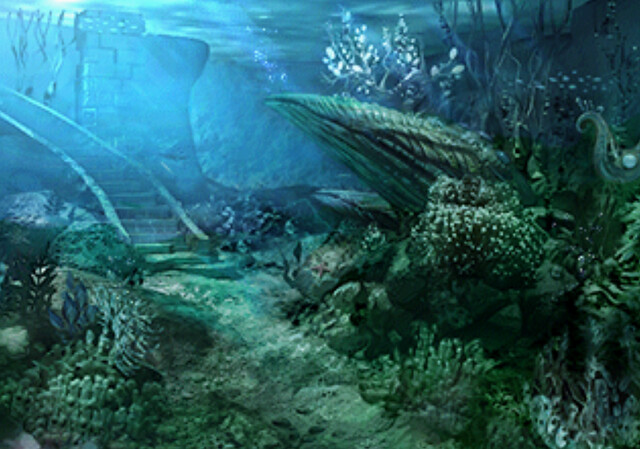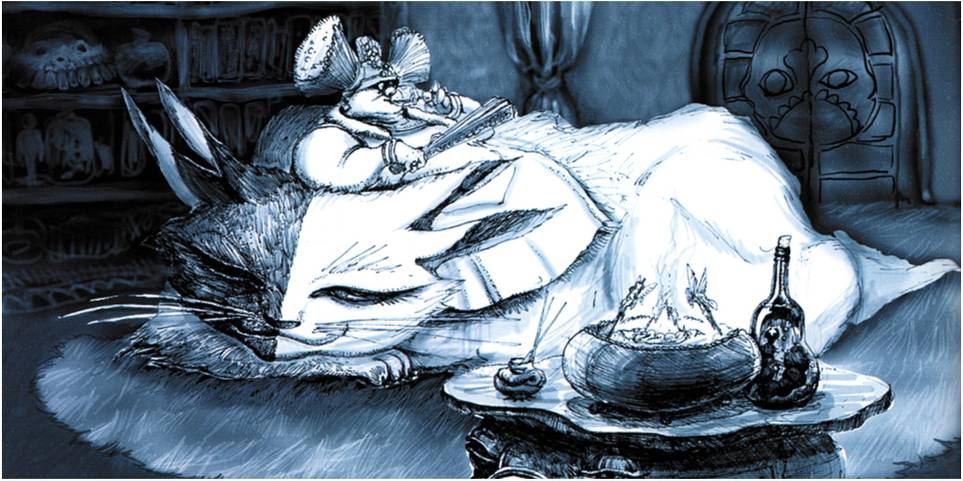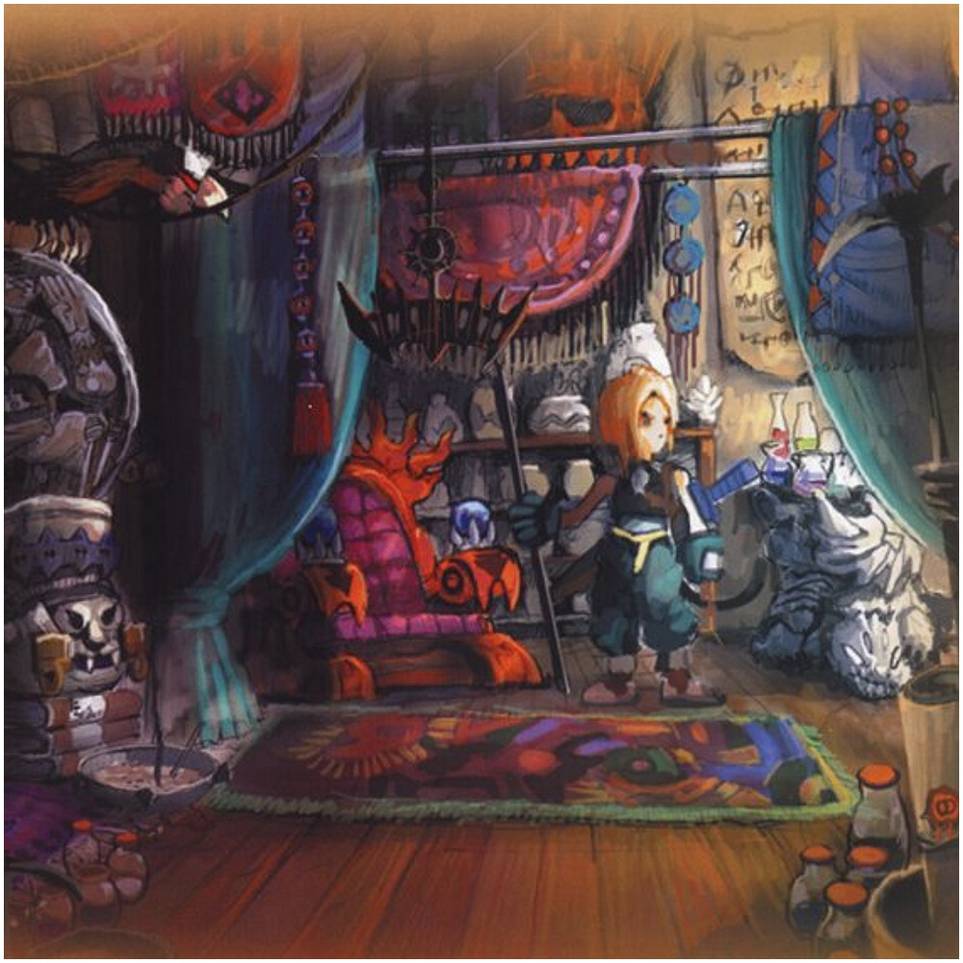4-So
Spicy
In a very real way, Zelda is responsible for my love of Final Fantasy 4.
April 1992. The Legend of Zelda: A Link To The Past was released and thanks to a new subscription to Nintendo Power, my head was reeling with all of the delights that would be in store. Problem, though, was that I had not saved up enough allowance to buy the game outright. My mom drove me to the local Walmart to secure a copy, and by "secure" I mean put on layaway because I just didn't have the money and neither did she. On the way home, she decided to stop at the video rental place so I would have something to do on a Friday night. Naturally, I wanted to rent A Link To The Past and, unsurprisingly, the only copy available was already out the door. So I stood there in the tiny room in back of this store - I assume it used to be the porn room until someone figured out game rentals were more lucrative - disappointed at my lack of Zelda and growing more disappointed as I realized the SNES selection was anemic. It was then that I noticed a bright red box that I had noticed before but never cared to really look at. But the sword as the "T" in the word Fantasy was kinda clever, I suppose, so I picked it up, glanced at the back of the box, those tiny four pictures maybe-sorta looked like Zelda if you squinted, so what the hell, maybe this is something worth checking out.
I got lucky with Final Fantasy 2 because it was a rare thing to get the instruction booklet with a game rental. Luckily, it was still intact and more or less looked new. I ended up devouring that instruction booklet on the ride home, growing more and more excited as I flipped through it. And once I finally was able to play? It was a revelation and a kind of transformative experience. I had played nothing like this. (And as much as it gets flack in this day and age, the Tutorial Building in Baron Village was a huge boon to the 12-yo boy that was, who had zero experience with proper RPGs.)
Anyway. You always love your first and whatnot. I don't have much to add to what the thread has already talked about (cinematic aspirations, ATB, "curated" challenges, etc.) but, as is my wont, here's some music. Obviously, I would be remiss to not mention the Prelude. What a way to start the game. (Interesting article about the evolution of the Prelude can be found here.) I cannot even really express how incredible it was to hear Prologue. I'm not one of those people that gets chills from things but if I did, this would likely be one of the things that sets it off. What a way to start the adventure; cinematic, aspirational, grandiose. The main theme is interesting because there's that steady beat, implying the one foot in front of the other kind of determination, but also a kind of melancholy that sometimes comes with forward progress and leaving things behind, along with a bit of the ethereal and fantastic. My favorite overworld theme. Caves, anyone? The hopefulness in the quest to become a Paladin. The foreboding and terror. A delightful bit of beauty at a part of the game where a respite is sorely needed.
I could go on and on. I won't. But I could. Needless to say, my favorite FF OST.
April 1992. The Legend of Zelda: A Link To The Past was released and thanks to a new subscription to Nintendo Power, my head was reeling with all of the delights that would be in store. Problem, though, was that I had not saved up enough allowance to buy the game outright. My mom drove me to the local Walmart to secure a copy, and by "secure" I mean put on layaway because I just didn't have the money and neither did she. On the way home, she decided to stop at the video rental place so I would have something to do on a Friday night. Naturally, I wanted to rent A Link To The Past and, unsurprisingly, the only copy available was already out the door. So I stood there in the tiny room in back of this store - I assume it used to be the porn room until someone figured out game rentals were more lucrative - disappointed at my lack of Zelda and growing more disappointed as I realized the SNES selection was anemic. It was then that I noticed a bright red box that I had noticed before but never cared to really look at. But the sword as the "T" in the word Fantasy was kinda clever, I suppose, so I picked it up, glanced at the back of the box, those tiny four pictures maybe-sorta looked like Zelda if you squinted, so what the hell, maybe this is something worth checking out.
I got lucky with Final Fantasy 2 because it was a rare thing to get the instruction booklet with a game rental. Luckily, it was still intact and more or less looked new. I ended up devouring that instruction booklet on the ride home, growing more and more excited as I flipped through it. And once I finally was able to play? It was a revelation and a kind of transformative experience. I had played nothing like this. (And as much as it gets flack in this day and age, the Tutorial Building in Baron Village was a huge boon to the 12-yo boy that was, who had zero experience with proper RPGs.)
Anyway. You always love your first and whatnot. I don't have much to add to what the thread has already talked about (cinematic aspirations, ATB, "curated" challenges, etc.) but, as is my wont, here's some music. Obviously, I would be remiss to not mention the Prelude. What a way to start the game. (Interesting article about the evolution of the Prelude can be found here.) I cannot even really express how incredible it was to hear Prologue. I'm not one of those people that gets chills from things but if I did, this would likely be one of the things that sets it off. What a way to start the adventure; cinematic, aspirational, grandiose. The main theme is interesting because there's that steady beat, implying the one foot in front of the other kind of determination, but also a kind of melancholy that sometimes comes with forward progress and leaving things behind, along with a bit of the ethereal and fantastic. My favorite overworld theme. Caves, anyone? The hopefulness in the quest to become a Paladin. The foreboding and terror. A delightful bit of beauty at a part of the game where a respite is sorely needed.
I could go on and on. I won't. But I could. Needless to say, my favorite FF OST.






